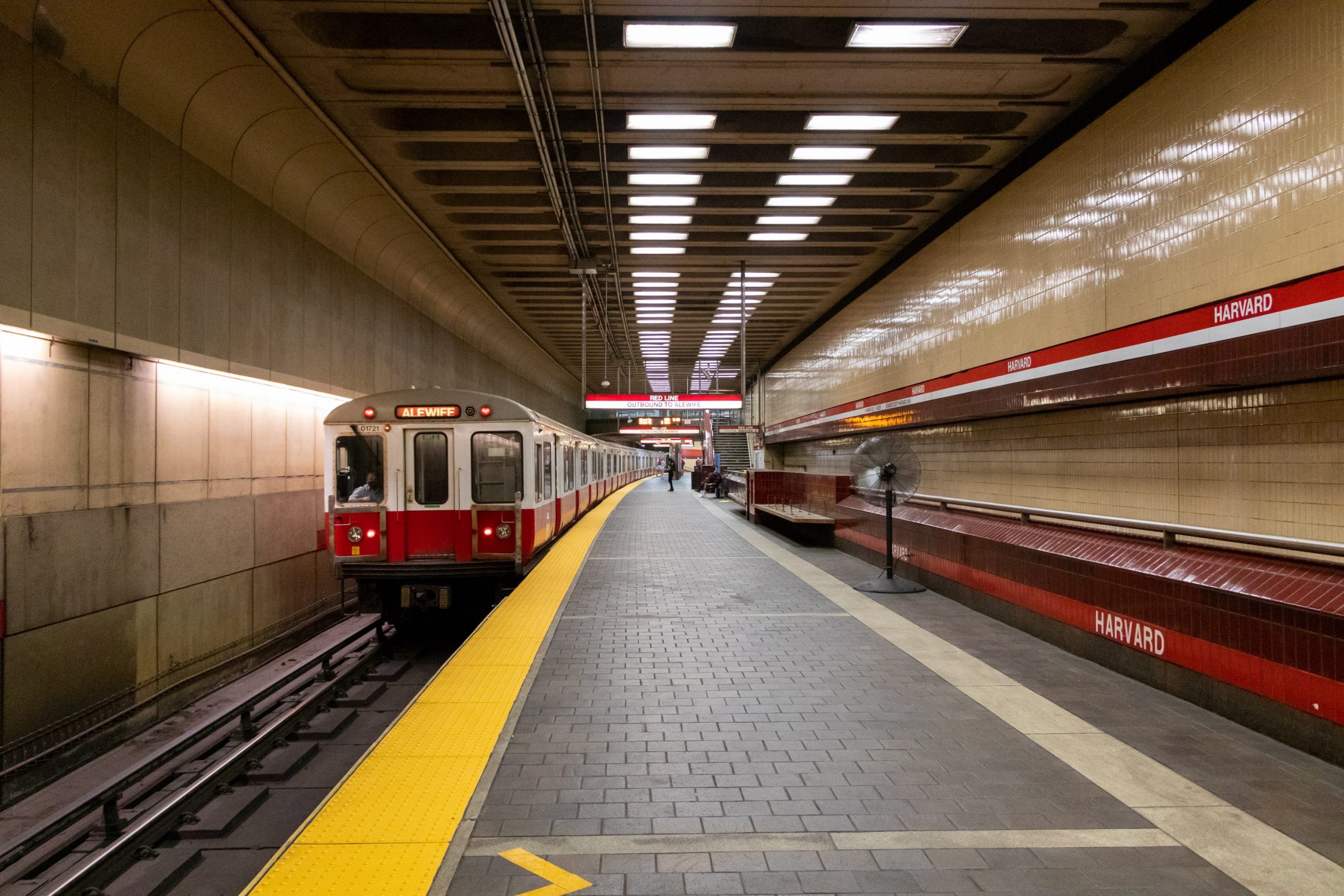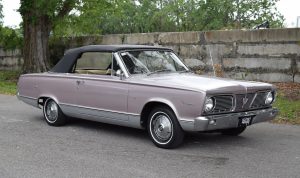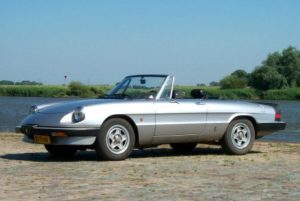
I was going to call this story Ticket To Ride, but I already used that title for my story about Woodstock. My thanks to Duke Ellington for this title.
I was going to call this story Ticket To Ride, but I used that for my Woodstock story. My thanks to Duke Ellington for this title.
My father went to work by walking to his medical office, which was attached to our house. He didn’t even have to go outside, just walked out the kitchen door, through the vestibule, and in the back door of his office. When I was little I assumed everybody’s father was a doctor, since mine was, so I probably would have also assumed they walked to their offices, if I even gave it any thought.
My own working life started with two summer jobs, in 1968 (McCarthy campaign) and 1969 (Planned Parenthood), in Washington, D.C. I lived with my sister and brother-in-law on Capitol Hill and took the bus to work both summers, because there wasn’t any subway yet in D.C. – the first segment opened in 1976. The buses were all air conditioned, so it was a pleasure to ride them, after waiting at the bus stop in the sticky, humid heat.
In 1970 I had a summer job at Houghton Mifflin Publishing Co. in Boston while subletting an apartment in Cambridge. The commute couldn’t have been easier, just taking the Red Line subway (see Featured Image) between Harvard Square and Park Street, which was four stops. Houghton Mifflin was at 110 Tremont Street, about half a block from the Park Street station. So it was a short ride, barely enough time to sing all the verses of “Charlie on the MTA.” Looking at a map of Cambridge now, it appears that my summer apartment would have been closer to the Porter Square subway stop if that had existed then, but at that time, Harvard Square was the end of the line.
After college I got my first permanent job, which lasted from December 1972 to August 1974, with the U.S. Department of Transportation at its Cambridge think tank, known as the Transportation Systems Center (TSC). TSC was located in Kendall Square, near M.I.T., and I was living in a house in Inman Square. If you are familiar with Cambridge geography, you will know that it was a straight shot down Broadway from my house to TSC, not much more than a mile.  Since there was plenty of parking, I drove my Plymouth Valiant that short distance, which took about five minutes. But in January of 1974, during the gas crisis, I didn’t want to wait in line for hours at the gas station, so I just left my car parked next to my house for a couple of weeks and took the bus to work. It was an easy bus ride, and I was grateful for that. It snowed heavily during those couple of weeks, so by the time I wanted my car again, I had to dig it out of a huge mountain of snow and ice. Even though the bus was so easy to use, I confess that I went back to driving my car once gas became available again, because parking was free and plentiful at TSC. (You would think that there, of all places, they would want to incentivize using public transportation, but no.)
Since there was plenty of parking, I drove my Plymouth Valiant that short distance, which took about five minutes. But in January of 1974, during the gas crisis, I didn’t want to wait in line for hours at the gas station, so I just left my car parked next to my house for a couple of weeks and took the bus to work. It was an easy bus ride, and I was grateful for that. It snowed heavily during those couple of weeks, so by the time I wanted my car again, I had to dig it out of a huge mountain of snow and ice. Even though the bus was so easy to use, I confess that I went back to driving my car once gas became available again, because parking was free and plentiful at TSC. (You would think that there, of all places, they would want to incentivize using public transportation, but no.)
One of the projects being undertaken at TSC at the time was a cost-benefit analysis of BART, the new transit system under construction in San Francisco. Everyone wanted that assignment, because it would mean multiple trips to San Francisco, but as one of the most junior people, I had no chance of getting it. Instead I got to evaluate a transit system in Morgantown, West Virginia. This meant fun flights to West Virginia from Boston, which at least were shorter than the flights to San Francisco. And if not for that project, I might have gone my whole life without ever going to West Virginia! A few years later, when I was living in California and actually had the chance to ride on BART, I wondered what my colleagues’ report had concluded.
I eventually left TSC for law school at the University of California, Davis. After graduating and passing the bar, I got a job with the Attorney General’s Office in Sacramento. I was still living in Davis, fifteen miles west of Sacramento. The drive to and from work was brutal, because in the morning you were driving due east into the sun, and in the evening you were driving due west, also into the sun (except in the middle of winter when the sun had already set before 5 p.m.). Plus, there was a waiting list to get a parking space in the building. I put my name on the list, but in the meantime, I discovered that there was a Regional Transit bus that stopped a few blocks from my house and also had a stop right by my office. So that was pretty convenient. It was about a 30-minute ride, and I would often fall asleep on the bus in the morning. Just before downtown Sacramento, the bus would go over a bridge where the metal roadway vibrated, so that would wake me up in time to get off at my stop. It was a fail-safe system.
While I usually walked the six or so blocks from my house to the bus stop, sometimes if I was running late I drove there and just parked on the street. The bus only came every half hour, so if I missed the one I was trying for, I would be seriously late to work. It was no problem parking near the bus stop, there was generally nobody else parked on the street. So I would jump out of my car and get on the bus.  The car, which had been a law school graduation present, was pretty distinctive in Davis, a silver Alfa Romeo convertible, and lots of people knew it was mine. One evening, I got off the bus and saw that there was a piece of paper on the windshield of my car. I thought, how sweet, somebody left me a note to say hi. So I walked to my car with a big smile on my face. Until I opened the note and saw that it said “I’m sorry I hit your car,” with a name and phone number. Then I noticed the big dent in the side. My beloved car, that wasn’t even a year old! The other person (or their insurance) paid to have it fixed, and it looked as good as new after the body work was done, but it was still pretty traumatic.
The car, which had been a law school graduation present, was pretty distinctive in Davis, a silver Alfa Romeo convertible, and lots of people knew it was mine. One evening, I got off the bus and saw that there was a piece of paper on the windshield of my car. I thought, how sweet, somebody left me a note to say hi. So I walked to my car with a big smile on my face. Until I opened the note and saw that it said “I’m sorry I hit your car,” with a name and phone number. Then I noticed the big dent in the side. My beloved car, that wasn’t even a year old! The other person (or their insurance) paid to have it fixed, and it looked as good as new after the body work was done, but it was still pretty traumatic.
Within a few months after that, I bought a house in Sacramento and left Davis for good. I still had not reached the top of the list for a parking space, but luckily another woman from the office lived across the street from my new house. I had known her slightly in law school, but she was two years ahead of me, and had already been at the office long enough to get a parking space. So we carpooled for a year or so, until she decided to quit her job, sell her house, and move to Spain. By that time, hallelujah, I had become eligible for a parking space of my own.
For my stories about my actual jobs, see Nine to Five on the Working prompt, and Maybe I’m Amazed on the My First Paycheck prompt.



Given your long-time California residency, I am not surprised by your reliance on cars for most of your commutes. And, yes, that Alfa is a dream. But I also loved your fail-safe bus commute. (My fail-safe in my train commute days was, by pleasant coincidence, always living and working at the last stops on the train.)
I also know the joys of parking spaces. Perhaps my only regret in moving from Milwaukee in 2015 was that I had to give up my coveted reserved space in the parking garage/lot next to my office. It was not only right next to the office building, but was covered — a true benefit in Wisconsin winters.
I guess your conclusion that I mostly relied on cars is accurate, although I was trying to emphasize the buses and trains that I took, as well as my father’s walking commute. I especially love my featured image of the Harvard Sq. MTA station and train, although I don’t remember ever seeing either of them look that clean.
Suzy, thanks for reminding me of “Charlie on the MTA” — I loved that song. Since my son has been living in the Boston area for over 30 years, that song always played through my mind as we took the MTA, much better than driving in his various locations there.
The Boston MTA system is great, despite poor Charlie getting stuck on the train. Everyone always wonders why, if his wife could hand him a sandwich through the window, she couldn’t also hand him a nickel so he could pay the increased fare. I know it’s a political campaign song, but still. . . .
I wish I knew what that BART report concluded, Suzy. Great recap of all your trains, cars, and busses to work. I had to smile about your taking the bus during the 1974 gas crisis. I was still in college then, but during the 1979 crisis I lived in a cottage a block from El Camino in Menlo Park, where there was a gas station on my corner. My 1969 Toyota didn’t need gas very often, but when it did, I’d put the car in the gas line at about 6:45 AM, go back to the house to get my breakfast, eat it in the car, fill the tank up with gas, and be on my way down El Camino to work.
I wonder if that BART report is available somewhere. Seems like it should be a public record. Thank you for noticing my trains and buses as well as my cars. I wanted to do this prompt because of all the different ways I went to work. Love the story about putting your car in the gas line and then going home to get your breakfast.
First, LOVE the Alfa Romeo – gorgeous! Must have been loads of fun to drive. Now on to the rest of your story; you’ve certainly had a varied commuter life, between walking, taking the bus, mostly driving and different cars and early in your life, different jobs. Thank you for the richly varied take on all your experiences, both the work and the ways of getting there.
Yes, the Alfa WAS loads of fun to drive. I wanted a convertible, didn’t care what kind, but in 1977 there were almost no convertibles being made. Some nonsense about safety, I think. And thank you for noticing how varied my commuter life has been. That was the point of my story (and of this prompt, I hoped). I forgot to mention that my husband often rode his bike to work, but I couldn’t do that because I was always dropping off or picking up kids somewhere.
For the next travel story, maybe “trains and boats and planes” will be a suitable earworm–you used lots of methods but maybe not a boat here. It is always a bonus when there are options other than driving, but our cities and neighborhoods don’t always have them. Your dad certainly had a great “commute”–easy to get home for lunch too!
It would have been fun to have a boat commute – maybe living in Staten Island and commuting to Manhattan by ferry. I did write a story in 2016 called Planes, Trains, and Automobiles, but it was about hitchhiking! And then our classmate Nick Wyman wrote a story in response because he had actually been in the movie of that name with Steve Martin. (Put that title in the search box and you’ll get both stories.)
Wow, as always Suzy your powers of recall and detail are amazing! And I understand the importance of getting that coveted parking space.
That’s quite a catalog of public transportation experiences. I’ve almost always driven to work, but the few times I’ve taken public transportation for any reason, say in New York, London, or Paris, I’ve always enjoyed the experience…people watching, unexpected dramas, even live music. When I did have an opportunity to commute to work via subway, it wasn’t nearly as enjoyable and involved changing lines too many times so I soon went back to driving. I still work but since the pandemic commute without leaving home via gotomypc.com…wouldn’t have it any other way!
What a great lineup and, as always, so clearly and warmly written. I love your description of early perceptions — wasn’t everybody’s father a doctor? Didn’t they all just disappear through the back kitchen door? And after that… outta sight, outta mind. Also so moved by your early work choices — McCarthy ’68, Planned Parenthood. Brava!
What? You weren’t equally moved by Houghton Mifflin Publishing Co.? What kind of a writer are you? 🙂
The Alfa is a sexy ride!
I did love that car! I sold it and bought a VW Quantum when my first child was about six months old, because the Alfa only had 2 seats, so couldn’t fit both my husband and baby in it at the same time.